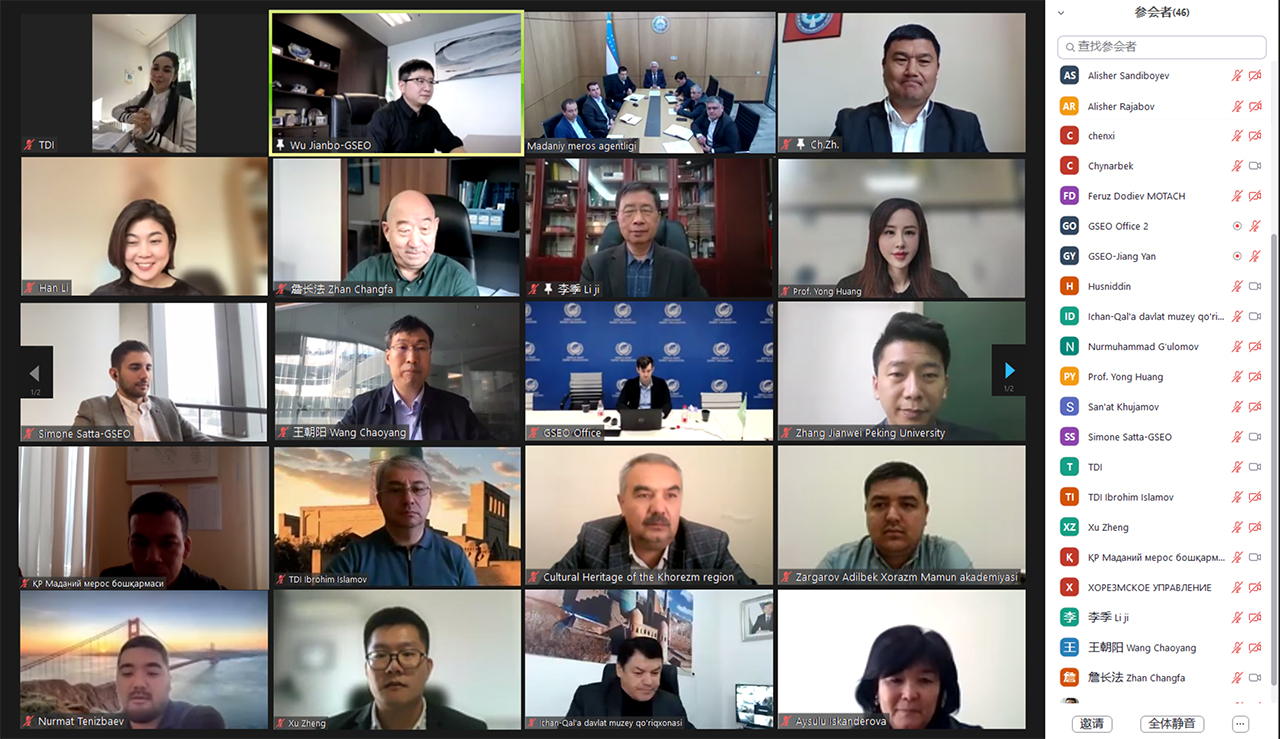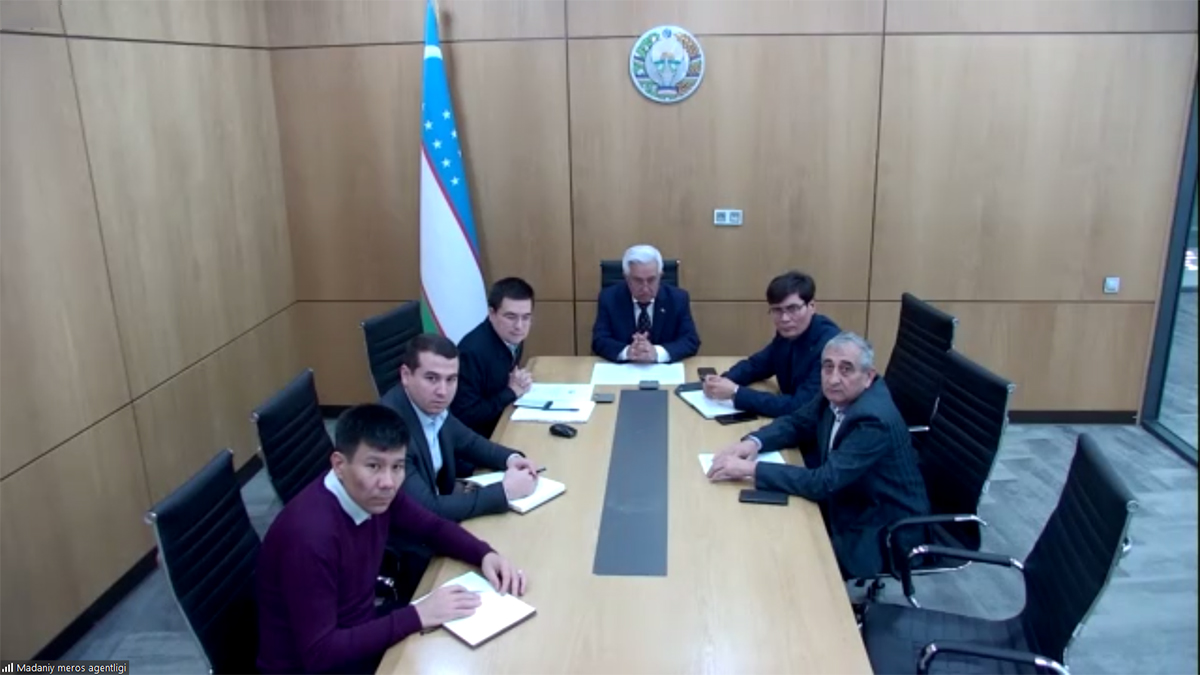GSEO气候变化与文化遗产保护理事会成立

11月10日,由绿色智慧能源组织和乌兹别克斯坦旅游和文化遗产部联合主办的“气候韧性:中国—中亚绿色文旅合作会议”于线上举行。会议以 “多边合作:构建可持续的文化遗产保护合作机制”为主题,围绕提高文化遗产地气候变化适应性、建立国际合作机制等议题展开讨论。来自中国和中亚各国约50名嘉宾参会。
会上,各方发起成立“绿色智慧能源组织气候变化与文化遗产保护理事会”,乌兹别克斯坦国家文化遗产署,哈萨克斯坦文化和体育部,吉尔吉斯斯坦文化、信息、体育和青年政策部,北京故宫文物保护基金会专家委员会,联合国教科文组织亚太地区世界遗产培训与研究北京分中心(WHITRAP北京中心),西交利物浦大学可持续发展与教育研究院等机构代表签署宪章,作为创始成员加入理事会。
乌兹别克斯坦国家文化遗产署代理署长图尔苏纳利•库齐耶夫致辞称,希望通过新设立的理事会机制,促进各方在学术交流、项目合作、政策协调领域的合作,为中国和中亚的绿色合作与发展作出贡献。
故宫博物院原常务副院长、北京故宫文物保护基金会名誉理事长李季表示,本次会议抓住了当今世界面临的最严峻、最迫切的挑战,创造了良好的构架基础,特别是气候变化与文化遗产保护理事会宪章的签字,标志着向正确方向迈出的扎实一步。北京故宫文物保护基金会专家委员会愿意根据有关合作项目的需求提供相应的咨询意见和专业支持。
南方海洋实验室海洋考古团队首席科学家、中国文化遗产研究院原副院长詹长法通过对中国援助柬埔寨吴哥窟、尼泊尔加德满都九层神庙、乌国希瓦古城等修复项目的介绍,强调了国际合作在遗产保护中的重要性。他指出,习近平主席今年9月出席的上合组织成员国元首理事会所发表的《撒马尔罕宣言》倡议各成员国“合作研究保护本地区文化和自然遗产”,希望通过本次会议确立的理事会机制,凝聚各方力量,将《撒马尔罕宣言》有关倡议落实为具体行动。
WHITRAP北京中心主任助理李光涵对气候变化与文化遗产保护之间的辩证关系进行了深入分析,指出遗产保护本身有助于减轻气候变化的影响,同时提出了针对性的措施与建议。
腾讯数字文化实验室首席架构师王朝阳以北京中轴线及国家博物馆数字化项目为例,阐释了科技对于文化遗产传承活化的重要作用。作为中国最大的互联网企业,腾讯在文化遗产领域的数字化实践,得到与会中亚各国代表的高度关注。
西交利物浦大学可持续发展与教育研究院院长、南京大学文化与自然遗产研究所副所长黄泳分析了气候变化与文化遗产的国际背景,倡议发掘传统知识和智慧,积极应对气候挑战。
吉尔吉斯斯坦文化部文化遗产保护与发展司首席专家若尔多绍夫·钦纳贝克对该国文化遗产地现状和发展需求进行了介绍,希望进一步密切中国和中亚在这一领域的合作,推动更多绿色发展项目。

据悉,气候变化与文化遗产保护理事会是这一前沿领域内发起成立的全球首个专门国际合作机制。北京大学考古文博学院院长、WHITRAP北京中心主任沈睿文表示,理事会的成立为探讨关键议题、团结国际社区,提供了良好的交流平台和框架。作为理事会发起成员之一,WHITRAP北京中心依托北京大学优质的科研环境和专业支持,在文化遗产保护跨学科的基础上,希冀为亚太地区构建可持续的文化遗产保护合作机制作出更多贡献。
绿色智慧能源组织秘书长邬剑波介绍,理事会将联系各国政府部门、国际组织、学术机构和企业,在全球范围内开展活动,并将重点关注中亚、非洲以及丝绸之路沿线正受到气候变化严重影响的文化遗产地,为实现联合国《2030可持续发展议程》贡献力量。


